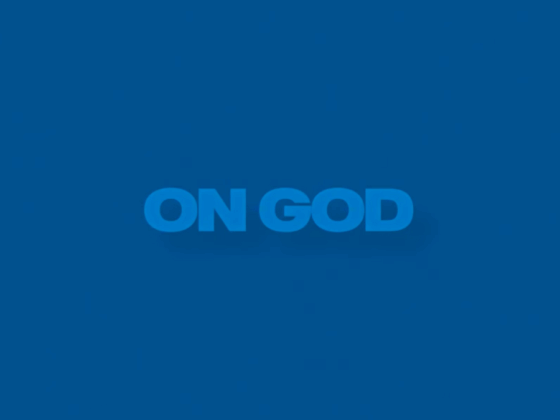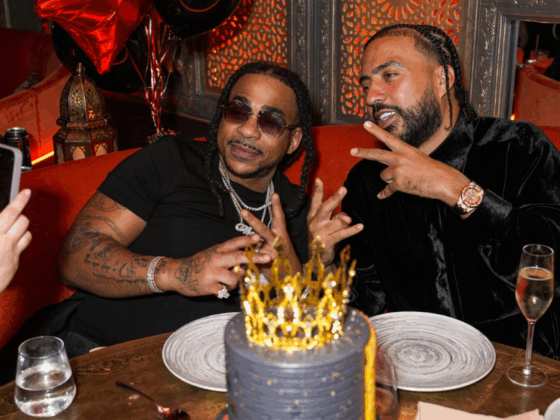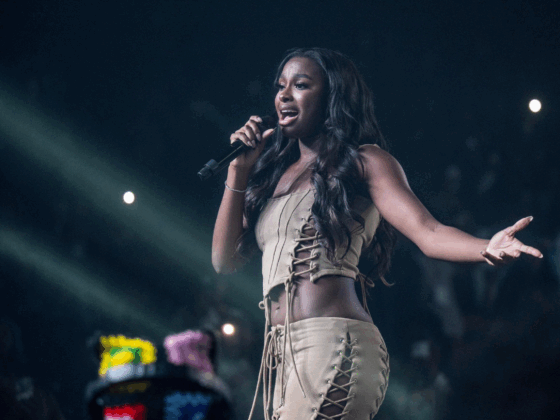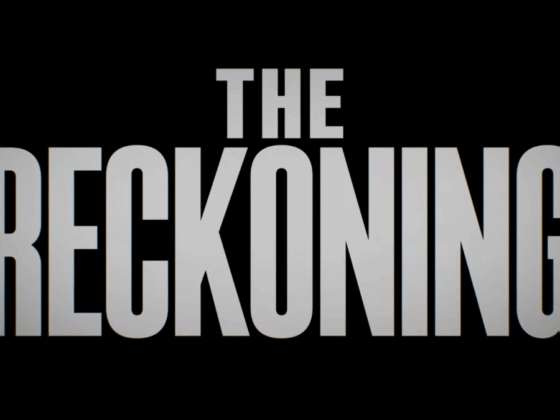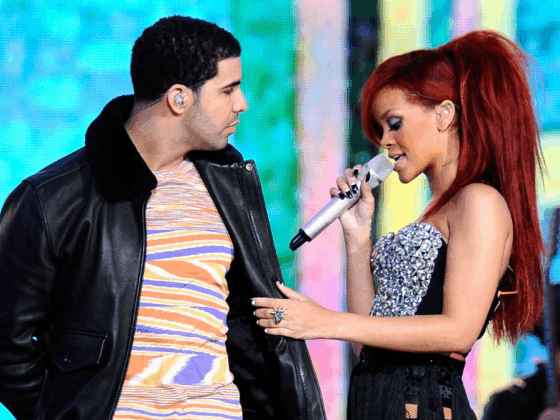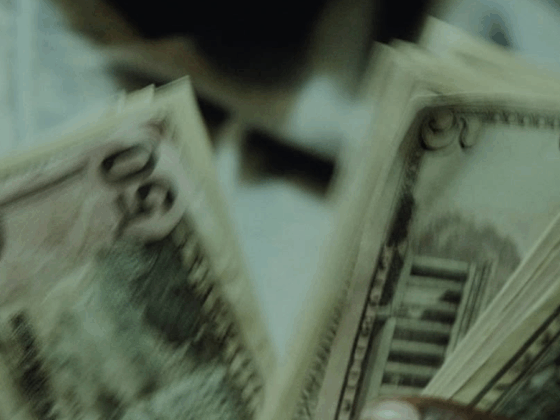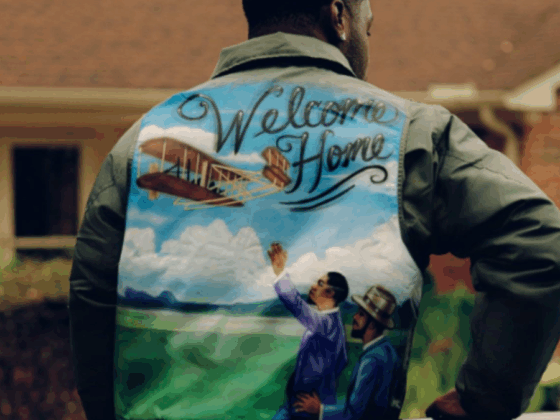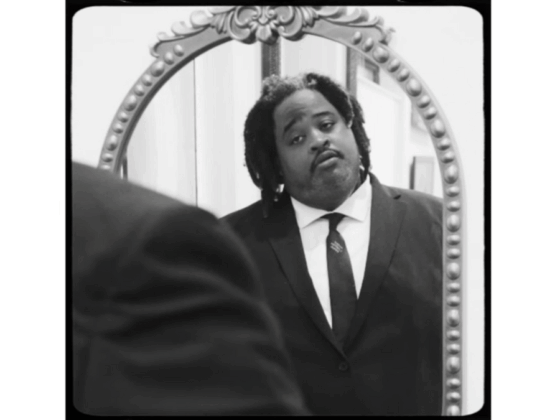
Elevator Interviews Every Tuesday. What is an elevator interview? Well, this is the short explanation. Interviews are tough to come by, but it doesn’t stop fans and journalists from having questions about their favorite songs, albums, mixtapes, artists, etc. So, imagine yourself in an elevator with your favorite artist and you have an opportunity to ask them five questions about their most recent work. In a way, it’s the journalistic version of the elevator speech. Adding on, each “Elevator Interview” piece offers background on the question itself. Instead of just reading the question, you also get to see why the question is being asked in the first place.
Podcasts and music are like morning coffee to me. At 26 years young, I still have never had a full cup of coffee. With that said, the way people describe morning coffee is the same way I’d describe what morning music or a good podcast does for me. Some days, I’ll start by listening to the new Kaytranada EP and other days, I’ll start my morning by listening to The Corner podcast with Andreas Hale and Kel Dansby. The particular morning that I’m thinking about while writing this piece started with the Stay Busy podcast hosted by Armon Sadler and Nic Earley. Not long after Wale’s latest album, Folarin II, was released, the talented podcast duo was giving him his flowers. In a rapidly changing soundscape that exists within popular music, Wale’s music stands as a prime example of how to push boundaries while still giving fans the quality of music that they yearn for. As Sadler and Earley’s conversation developed, the following question came up: What is Wale’s signature sound? It’s not a question that I’d thought about previously, but it did pull me back to something I’d read about Drake years ago. For the life of me, I can’t recall who wrote it. However, I can remember that the overall sentiment was something like this.
“If I had to explain to an alien what kind of music Drake makes, I’d play ‘Sooner Than Later‘ from Comeback Season.”
Now, I read this years before Nothing Was The Same and Take Care debuted, but the sentiment is clear. Drake was the guy who could give you singing and rapping in an emotive nature that is hard to explain. With this thinking, I could try to explain J. Cole’s sound using something like “No Role Modelz” from 2014 Forest Hills Drive. Getting back to the question at hand, I’m not entirely sure how I’d explain Wale’s sound other than saying that he’s from Washington, D.C. I know that sounds lazy, but hear me out.
I would never disrespect the local people of Washington, D.C. by saying I’m from Washington, D.C. I didn’t grow up there and I am proud to tell people that I’m from New Jersey. With that said, Washington, D.C. is my home away from home. Fresh out of high school, I went down to the nation’s capital and stayed there until I was about 25 years old. In short, I feel like I matured into a man while living in that city and I’m forever grateful for what it gave me.
Whether I was working at Amidon Bowen Elementary School over in Southwest or I was helping out with the city’s high school basketball tournament at American University, the city gave me experiences that I wouldn’t trade for the world. I’ll always remember going to pick up this girl from Barry Farms for our first date and realizing that Barry Farms is not the type of place you go if you don’t know anybody beforehand. I also remember being a bright-eyed 19-year-old at Wale’s “Concert About Nothing” over on H Street. Living in the city, I learned a lot more about why Wale’s sound is the way it is. For example, the poetry that Wale puts forth on the end of “Diary” is representative of a larger spoken word scene that is unique to a few cities in the country. From the Spit Dat open mic near Howard University to the dozens of Busboys & Poets locations sprinkled throughout the region, Washington, D.C. has a poetry scene that is only rivaled by New York, Orlando, Chicago, Philadelphia, Los Angeles and a few other cities.
Spending a day in the city, you can also understand why Go-go music is featured on songs like “Dig Dug” and “Jump In” with Lil’ Chris. The list of ways that Wale’s music connects to the fabric of the city is endless.
Personally, I started to understand the connection between Wale and the city a bit more when his Festivus mixtape dropped. It’s hard putting this into words on a digital page, but I understood more about Wale and Chance The Rapper’s song, “Friendship Heights,” when I actually went to Friendship Heights for the first time. As a college student at American University, I can honestly say I’ve taken more girls to the Cheesecake Factory to eat than I’d like to admit and for whatever reason, “Friendship Heights” sounds like the neighborhood looks at night in the winter. Like I said, it’s hard to explain, but this is the best that I can do.
While living in the city, songs like “CC White” start to have a bit more meaning and you start to recognize the places that Wale drives past during the “Staying Power” video. The nature of Wale’s music truly hit home for me in October 2019.
After graduating form college, I was depressed. There is no other way to explain it. I felt like I was far behind my friends who went immediately into graduate school or well-paying jobs. Instead, I went home and I didn’t have a plan on what I was going to do next. Not to mention, I didn’t do so well in school, so I had graduated six months after everybody else in my class. On top of that, my girlfriend of about 2.5 years moved on to a brighter future that better served her goals and aspirations. In the words of Anderson .Paak and Nas, it was all bad. Fortunately, I caught a break and got a job down in Washington, D.C. at ABC News. With very little to my name, I did what I had to do to get from my Mom’s house in New Jersey to Washington, D.C. I sold the ring I had gotten my ex-girlfriend and put down a security deposit for a room in a house on Kentucky Avenue in Southeast Washington, D.C. My Aunt Liz loaned me an air mattress, my parents drove me down to the city and I moved on with the next chapter of my life.
Making my story less long, I ended up leaving the house I was living in after a few months because my two roommates worked for the Trump administration. The new apartment that I was supposed to move into fell through and I didn’t really have any place to move to until I found my own spot in Silver Spring. It wasn’t much, but it was mine. No matter how big or small it is, the feeling of having a place that you can call your own is liberating. After I moved in all of my stuff on the morning of Howard’s 2019 Yardfest, I poured myself a drink, picked up my phone and decided to play a song. I could’ve played “New Apartment” by Ari Lennox, but I didn’t. Instead, I decided to play “50 In Da Safe” by Wale and Pink Sweat$. I can’t explain why I played that song, but it felt right in that moment. After all of the ups and downs that I had experienced as a broke college student to having my own spot in the city, it felt right to play his music. If you were to ask me what Wale’s signature sound is, I’d tell you it’s playing “50 In Da Safe” while looking out of the window of your first apartment.
More than two years after that moment, I’m writing this piece. People will tell you that writers shouldn’t be fans of artists because it’ll cloud their judgment. To a degree, that is right, but I’d also be lying to you if I said I wouldn’t be at Wale’s first tour stop in Nashville next month. I’d also be lying to you if I said that I didn’t want to chop it up with him and do a proper interview. I can’t tell you when or if that will ever happen, but I can tell you this. If I could only ask Wale five questions about the two projects he’s released since his last tour, I’d ask him these questions and these are the reasons why.
Question One
Project: The Imperfect Storm
Question: How, if at all, have you talked to your daughter about police brutality?
Reasoning: One of the most striking lines of The Imperfect Storm hides in the first verse of “June 5th.” You said, “Look, this edible done made me astronaut/I try to watch to the news but I’m lashin’ out/My daughter seen the murder on cellular phone/And that was not on purpose, was orderin’ true.” I kept coming back to this line because of it’s blunt honesty. The summer of 2020 was stressful in more than one way, so I, like a lot of other people, turned to edibles to help ease the stress. At the same time, I wasn’t in a position where I had to take care of another human being while all of this was going on. So, when you said that line I immediately began to wonder how old your daughter was. I also began to wonder about what kind of conversations you would have with a young child after they see something as violent as a person getting killed, presumably by the police. I apologize if I’m overstepping my boundaries, but that line still sticks with me because I have younger cousins and I always wonder about how they are consuming all of this trauma through their phones, laptops, tablets, etc.
Question Two
Project: The Imperfect Storm
Question: How did the death of Oluwatoyin Ruth “Toyin” Salau impact you?
Reasoning: Towards the end of “Shit Don’t Stop,” you began to sign, “Oluwatoyin.” Given the nature of the song, I’m assuming that it refers to a young activist in Florida by the name of Oluwatoyin Ruth “Toyin” Salau. Like many others, Salau’s death hit me hard for a number of reasons. Most importantly, Oluwatoyin reminded of so many other young, Black folks that were outside during the summer of 2020. Yes, there were elders and community organizers outside during that movement, but the overwhelming majority people that I saw on the front lines were people between the ages of 16 and 22. To put it frankly, they were kids. Still, they came outside each and every day in the face of state violence and put in work. To see someone like Salau get killed after being outside trying to make change, it hurt all that much more. With everything that was going on, her name got pushed to the back of media coverage and what not. But you were the first person to mention Salau’s name on a song and that nearly made me stop in my tracks while I was listening to it for the first time.
Question Three
Project: Folarin II
Question: Did you want “Angles” to be the first single off of Folarin II?
Reasoning: Prior to the release of Folarin II, you completed an interview with Robby Seabrook of XXL. During that interview, you said, “I’m grateful for ‘On Chill’ and the success of it. In the alternate universe, I would want ‘Sue Me’ to be the first single on the last project. Would it have been successful as ‘On Chill?’ Most likely not.” Knowing that, I began to wonder if you would have wanted “Angles” to be the single. It’s a great song, but it feels like you’ve really been pushing “Dearly Beloved” and “Jump In” lately. Those two songs also feel like they fit the overall project more than “Angles,” but I could be completely wrong.
Question Four
Question: How have you progressed in your ability to practice self-love within the last two or three years?
Reasoning: At the start of “Set You Free” off of Wow…That’s Crazy, you said, “Picture that. A Black man is learning to love himself. Wow, that’s that’s crazy, right?” Two years later, you hop on “More Love” with Shawn Stockman and say, “I love me baby. You should love you more.” Self-love has been an ongoing theme throughout your work, but it feels like it’s come up more often in these last two or three years. From “Set You Free” with Kelly Price to “More Love” with Shawn Stockman, it feels like you’ve made progress in this area. I’m wondering if this is true. If so, I am happy for you on a personal level. As someone who has struggled with depression heavily for the last decade or so, I can honestly say that this is the first year of my adult life that I haven’t had a suicidal thought. It’s freeing to achieve this point in my life and I’m hoping you’re enjoying the same happiness.
Question Five
Project: Folarin II
Question: What song(s) did you originally picture J. Cole appearing on?
Reasoning: After the release of Folarin II, you appeared on Hot 97 with Ebro, Laura Stylez and Peter Rosenberg. When you spoke to Rosenberg about J. Cole, you mentioned that you played a number of records for J. Cole before someone mentioned “Poke It Out.” After “Poke It Out” was mentioned, he was determined to be on that song because it was the song that most people wouldn’t expect him to be on. However, I was curious to find out what songs you originally played for him in hopes of getting a verse or a hook.
Bonus Question
Question: When the world is able to get a better handle on the COVID-19 pandemic, will you bring your New Year’s Day concert to a new venue?
Reasoning: One of the last concerts I attended before COVID-19 took hold of the entire world was your concert at The Fillmore in Silver Spring, Maryland. Having worked at The Fillmore and lived in Silver Spring for some time, I can honestly say that’s one of the five best concerts I’ve ever been to in my entire life. However, you have said that you wanted to pull away from doing annual concerts at The Fillmore in Silver Spring. I’m wondering if you plan to move it to a bigger venue or are you done with them all together.
